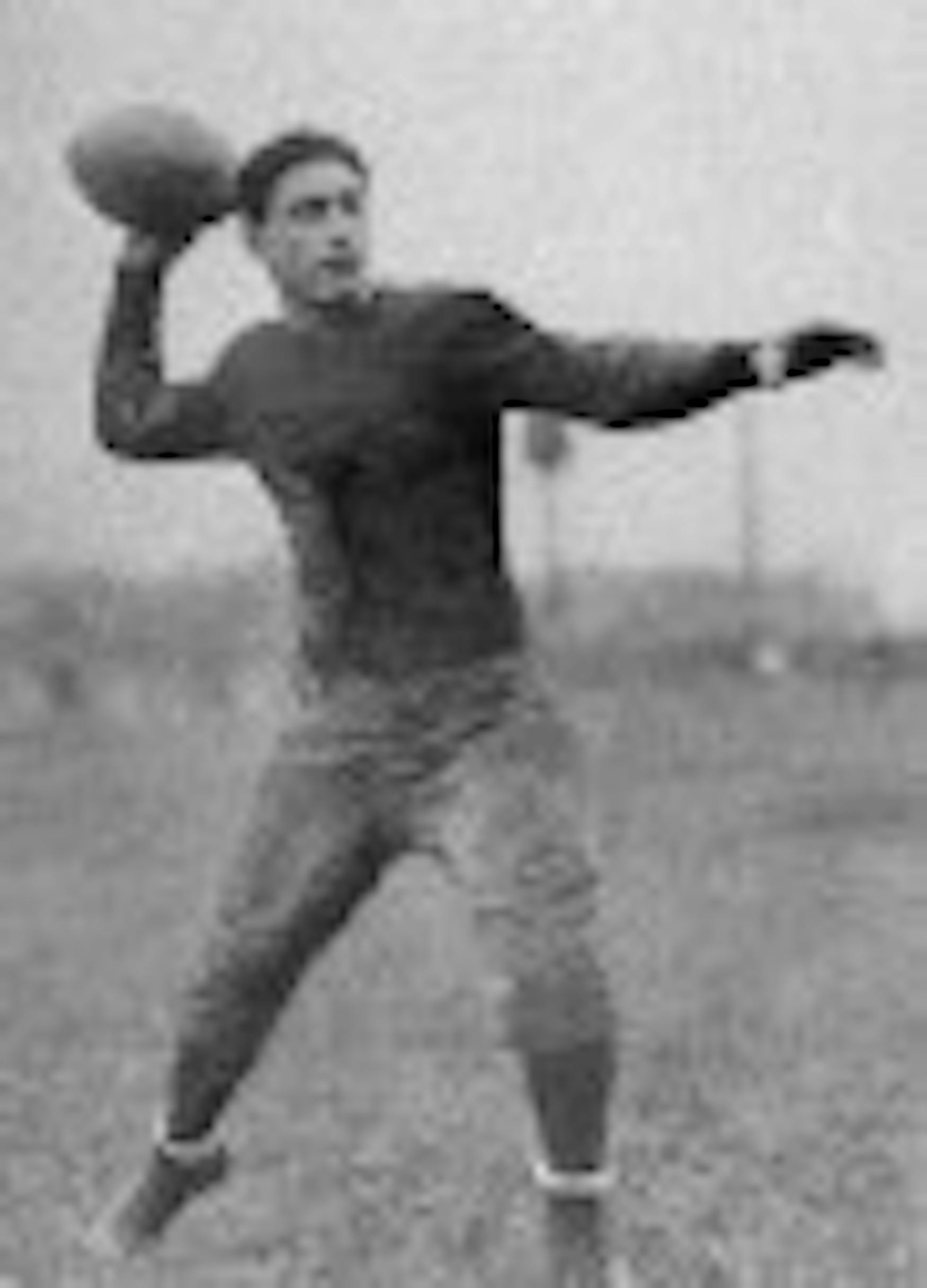Reviving a legend
A football hero inspires author Murray Greenberg '77
Not an especially large man, wearing a neatly pressed sweater and dark slacks, author Murray Greenberg '77 seems just about as far removed from the muddy playing fields and bone-jarring hits of 1920s American football as a person could be. Yet it is the 1920s, when the National Football League teetered on the edge of existence and when men risked the very real possibility of grievous injury for one or two hundred dollars a game, that serves as the backdrop for Greenberg's book Passing Game: Benny Friedman and the Transformation of Football. Speaking in Rapaporte Treasure Hall last Wednesday before an audience of students, members of the Waltham community and several Brandeis alumni, Greenberg talked about Benny Friedman, a 1920s football player and former Brandeis football coach. Friedman is the subject of Greenberg's book, which was released in Nov. 2008. He committed suicide in 1982, a fact that Greenberg mentioned in the book but not the presentation.
According to Greenberg, Friedman was a "one-of-a-kind player with the unprecedented skill to throw the forward pass and the audacity to do it time and again. . A sensation in the truest sense of the word."
Greenberg quoted sportswriter Paul Gallico, who said that Friedman, the son of two orthodox Jewish immigrants, was "the greatest football player in the world." From 1924 to 1934 Friedman played with the University of Michigan and then in the fledgling NFL with the Cleveland Bulldogs, Detroit Wolverines, New York Giants and the Brooklyn Dodgers.
After his days as a football player, Friedman went on to become head football coach at City College of New York and then athletic director and head football coach at Brandeis University until the team was disbanded in 1959.
Greenberg's fascination with Friedman's life stems from his own experiences as an athlete. He was the goalie on the Brandeis men's soccer team in 1976 when it won the National Championship and was inducted into the Brandeis University Athletic Hall of Fame in 1997.
After graduating from Brandeis, Greenberg studied at Hofstra University School of Law and worked as a practicing attorney for over 20 years. Recently, however, Greenberg became interested in writing and took courses at the Columbia School of Journalism, hoping to pursue a career as an author.
Greenberg first learned of Benny Friedman at a Hall of Fame Tribute dinner. Many of Friedman's former players, known as "Benny's Boys," had been trying to resurrect Friedman's legacy after he had largely faded from the public eye and the football hierarchy. Inspired by these men's passion for Friedman, Greenberg made it his mission to shed light on this largely forgotten icon.
"I felt like I had been let in on some kind of secret, but it shouldn't have been a secret, and I felt like it was a story that really should be told," Greenberg said of Friedman's legacy.
Friedman's story is "more than just a football story," Greenberg said. "It's really a human interest story. It's the story of rediscovery of a genuine American innovator and hero to the Jewish community who had fallen through the cracks of time."
To emphasize Greenberg's significance in the American Jewish community, Greenberg quoted Hal Leibowitz, sports editor of the Cleveland Plain Dealer in the 1920s and '30s, "'To American Jews, more than a savior of the New York Giants, or of the National Football League, more than a revolutionary forward passer, Benny Friedman was their hero.'"
In Friedman, Greenberg, too, found a hero, impressed by his role as an athlete and a Jew. "This young man, this sensational, unique football player was the embodiment of the tough Jew; the living, breathing retort to the stereotype that Jews excelled only in the intellectual realm," he said.
Friedman's story chipped away at the stereotypes of Jews in America and was an inspiration to young Jews all over the country. "He was celebrated by Jews throughout the nation," Greenberg said, adding that on road trips, Friedman frequently spoke at synagogues.
Only recently, due in great part to the determined efforts of Benny's Boys and the influence of Passing Game, has Friedman begun to receive the recognition Greenberg believes he deserves. In 2005, he was elected to the Pro Football Hall of Fame in a ceremony attended by many of his former players and Greenberg.
Just as Greenberg was largely unaware of Friedman's story until the 1998 Hall of Fame dinner, many Brandeis students present at Greenberg's lecture were in the dark about this figure in the University's history. Said Eric Frieman '12, "I never knew that someone that amazing coached the football team.



Please note All comments are eligible for publication in The Justice.